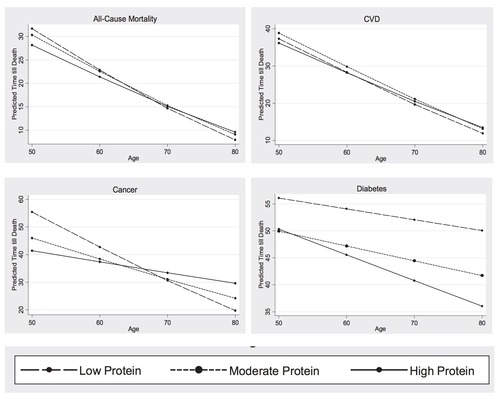We love talking about the science here at InsideTracker… and we’re glad to see that our readers do too! Many of you provided some really great feedback to our last blog on the science behind the paleo diet. Here’s some more science-talk for your reading pleasure.

A recent study published in the journal Cell Metabolism, may have interesting implications for paleo followers. The epidemiological study of 6,381 adults ages 50 and over, found that high protein intake is related to cancer and all-cause mortality for adults 50 to 65. Most fascinating? The major driver of this association was animal protein consumption. These results are in agreement with recent findings on the association between red meat consumption and death from all types of cancer (study, study). In fact, when comparing these outcomes for plant-based proteins, there was no relationship found. Previous studies have found that a low carbohydrate diet is associated with an increase in mortality, and that high intake of animal-based products increased this risk even further (study, study).
All of this may be bad news for meat lovers… with one exception: seniors. For individuals 66 and over, high protein was actually shown to be protective against diseases of aging, like cancer and diabetes, as well as overall mortality.
This result could be explained by the change in body composition as we age. Aging is marked by a decrease in skeletal muscle, referred to as sarcopenia. Older adults therefore require more grams of protein per kilogram of body weight. The authors’ conclusions are consistent with these recommendations, suggesting “low protein intake during middle age followed by moderate to high protein consumption in old adults may optimize health span and longevity.”
Finally, research has long suggested that long-term calorie restriction may reduce your lifetime risk for developing certain chronic diseases and diseases of aging, such as cancer, diabetes, hypertension and cardiovascular disease. Certain researchers believe these results may have to do with growth hormone receptor/insulin-like growth factor deficiencies (GHR/IGF-1). In studies, both mice and humans with growth hormone receptor/IGF-1 deficiencies are less likely to experience age-related diseases. In the current study, IGF-1 levels were positively associated with protein consumption in a randomly selected subset of the population. In other words, as protein consumption increased, so did IGF-1 levels.
Click here to sign up for an InsideTracker plan and start tracking your own biomarkers today.
What’s noteworthy about this study is that, unlike some of the studies discussed in our last blog on paleo, this study was highly powered. It used data from the National Health and Nutrition Examination Survey (NHANES III), which is a nationally representative, cross-sectional study conducted by the Centers for Disease Control and Prevention (CDC).
It is important to note that the study we are discussing was not about the paleo diet. In fact, the words “paleo,” “caveman,” or “hunters and gatherers” were never mentioned in the article. Paleo advocates may even argue that this study is not relevant to true paleo subscribers, who focus on a plant-based, whole foods diet, which is only supplemented by meat and animal products. In that case, this study is not ground-breaking. It supports what years of research have already told us: people who eat plant-based diets (albeit not necessarily vegetarian) tend to live longer, healthier lives.
Get started on your healthier life. Sign up for an InsideTracker plan today.
Try Our Free Demo